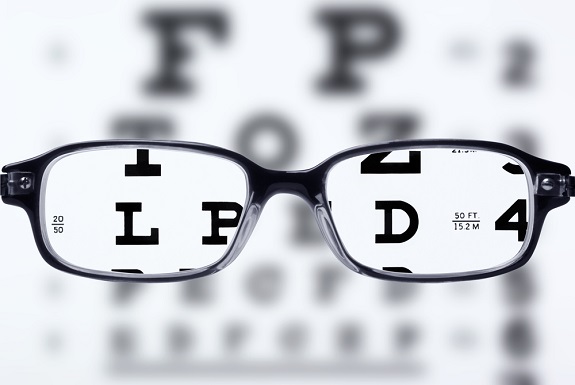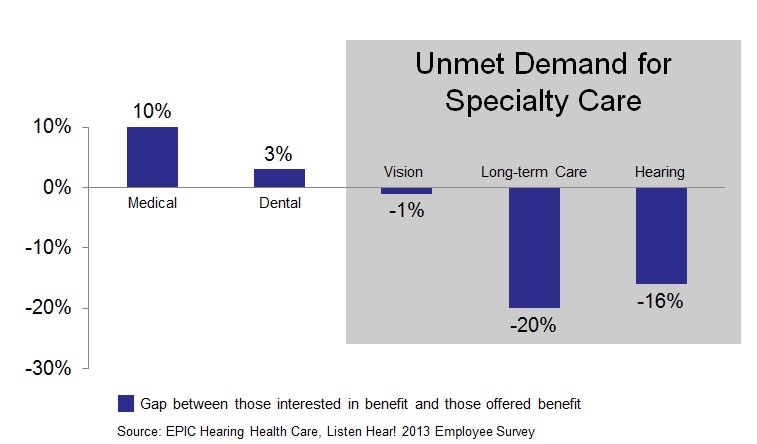How to Grow Your Business with Hearing and Vision Benefits

By: Brad Volkmer
Hearing and vision problems are on the rise. Now is the time for independent insurance agents to review their offerings to maximize their revenue streams while meeting the needs of their clients.
Hearing problems are extremely common in the workforce. A recent Listen Hear! study by EPIC Hearing Healthcare, which surveyed more than 1,500 full-time employees, showed that 12% of full-time employees report a diagnosed hearing problem for which they are seeking treatment, but an alarming 30% suspect they have hearing loss and have not sought treatment. Of employees with untreated hearing loss, 95% say it impacts their performance on the job.
Vision problems are another common concern. According to the VisionWatch survey conducted by The Vision Council, over half of Americans wear eyeglasses. A recent Transitions Optical survey of 1,000 employed adults revealed that half of all employees report that visual disturbances—tired, dry eyes and problems with light and glare—frequently impact the quality of their work.
If employees can’t hear or see well, it’s hard to work well. These aspects of health care are critically important to well-being, productivity and satisfaction, but general medical insurance does not usually cover them.
The Listen Hear! survey asked employees if they were interested in benefits such as medical, dental, vision, long-term care and hearing if their employer offered them. While demand was higher for traditional benefits, it was mostly in line with or even less than the percentage of employees with employers who offered these benefits. Demand for newer specialty benefits, on the other hand, showed significant gaps. Twice as many employees want hearing insurance than are offered it.

While many assume hearing and vision benefits are more relevant to older generations, millennial employees are experiencing hearing and vision health issues at shocking rates—and often value these benefits as much as their aging colleagues.
These gaps illustrate an opportunity for agents to address unmet health and productivity needs with their clients, bringing attention to hearing and vision problems that might otherwise go ignored. Brokers can offer solutions in the form of benefits offerings. If a client’s major medical carrier does not cover hearing aids or vision correction, consider recommending hearing and vision insurance as ancillary benefits.
Bundling benefits may be a good option to explore for your clients. The market is trending toward bundling, and you can design bundled plans in a variety of different ways, such as bundling ancillary products like vision and hearing together or with general medical insurance. Bundled offerings can reduce costs and simplify administration while affordably filling in the gaps of general medical insurance.
Beyond providing access to benefits, agents can present clients with educational resources to integrate into their health and wellness communications and activities, such as wellness newsletters and health fairs. Content for hearing education, including videos, story copy and more, is available free through the Listen Hear! initiative.
Employers and employees alike agree there is little question about the importance of healthy hearing and vision to promote health and well-being. Agents have a unique revenue opportunity to educate clients—and improve lives.
Brad Volkmer is president & CEO of EPIC Hearing Healthcare (EPIC). As one of the founding members of EPIC, Volkmer has been the driving force behind the development of the EPIC Hearing Service Plans and the positioning of hearing and hearing benefits as a specialty care discipline.










